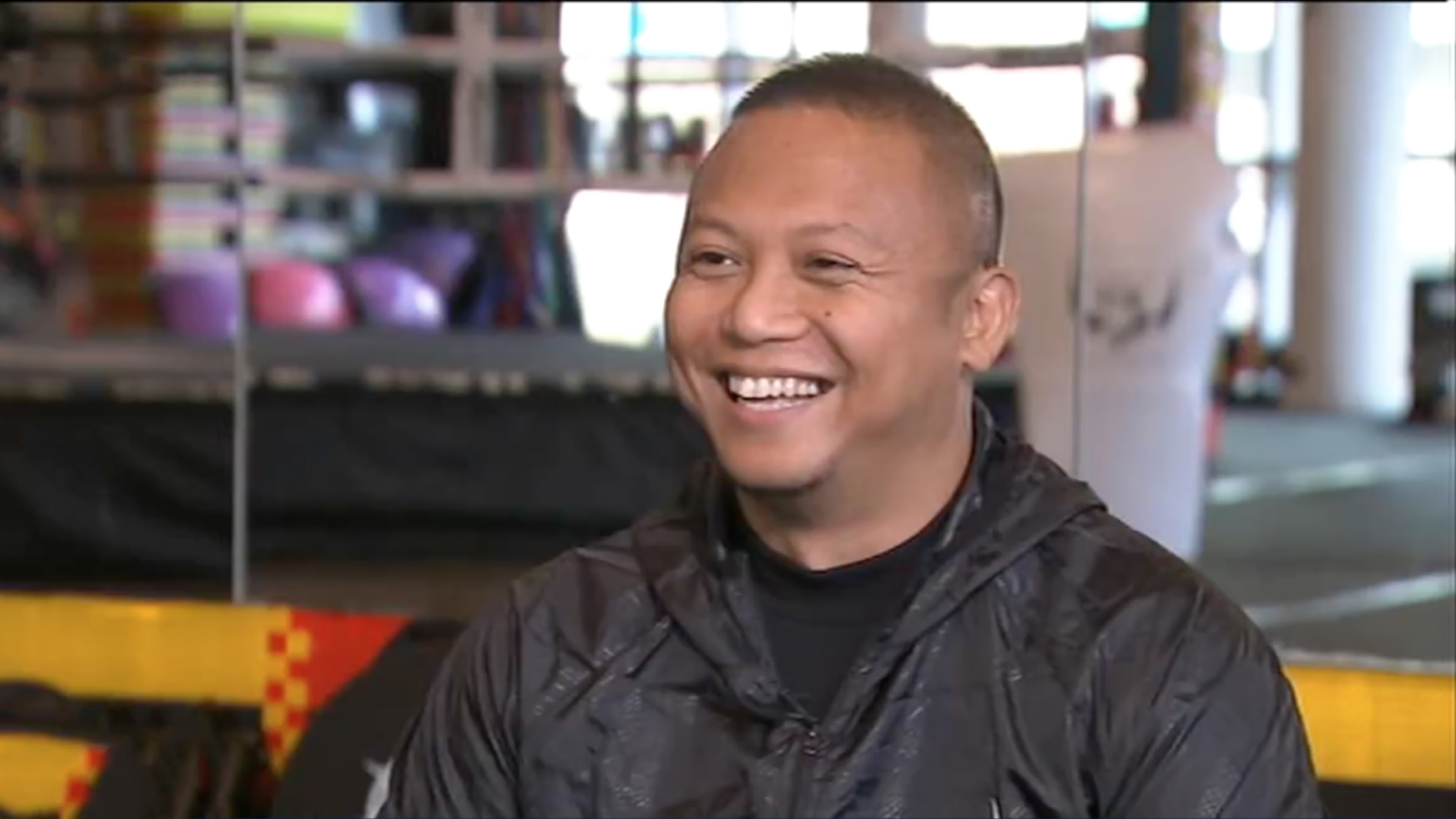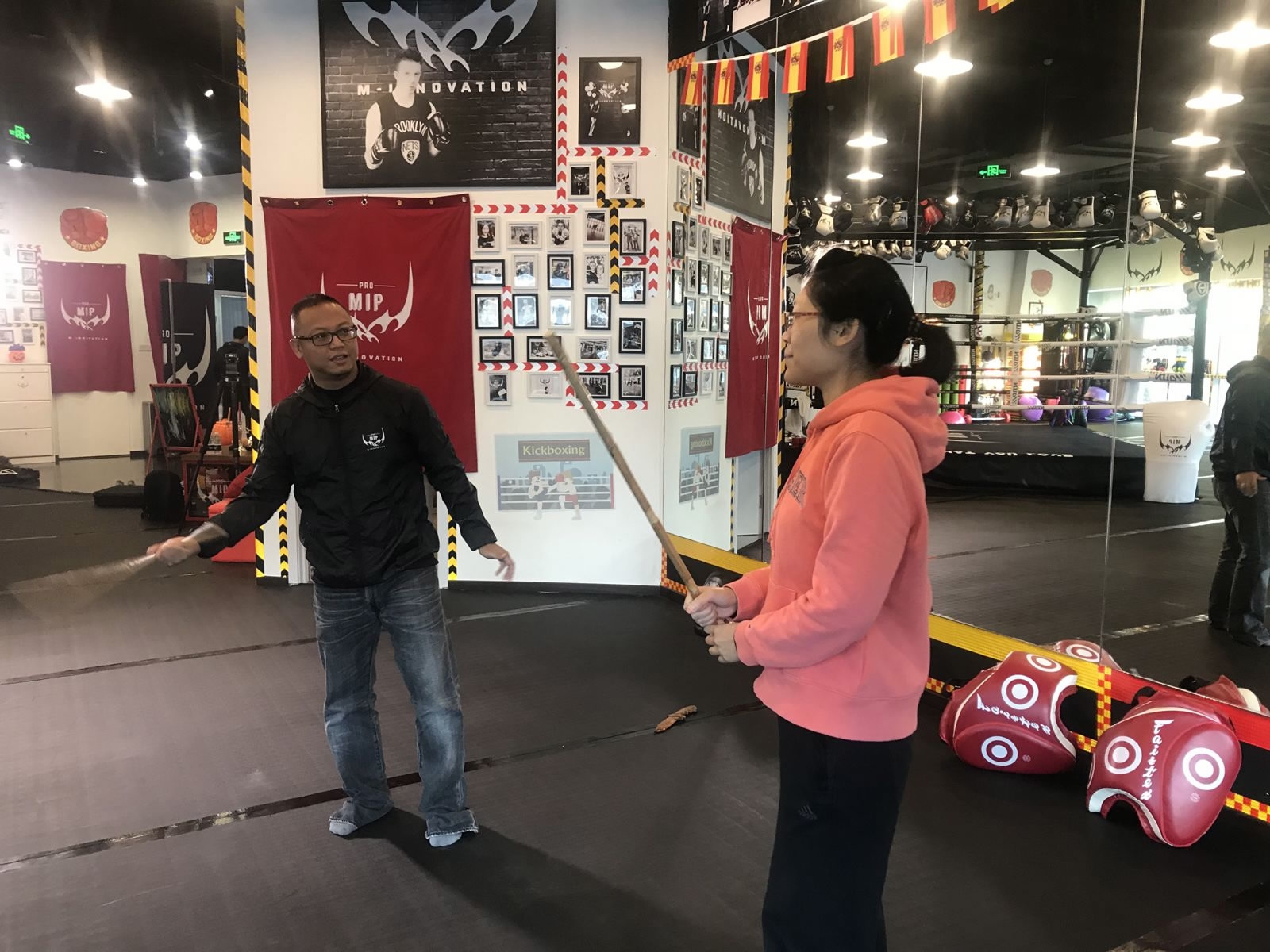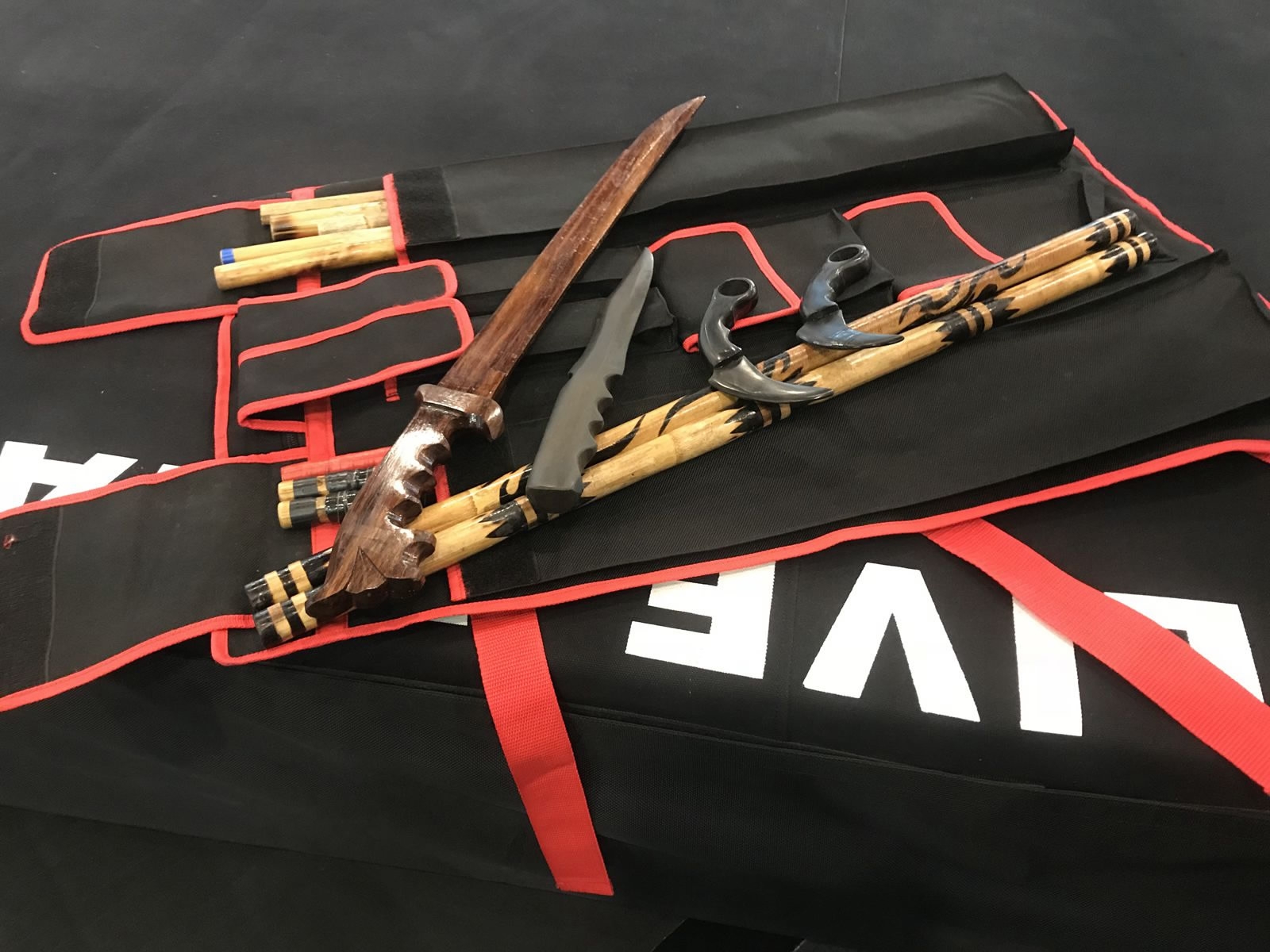
Culture
21:17, 13-Nov-2017
Filipino martial arts instructor finds second home in Beijing
By Grace Shao

Rhio Zablan has been in China for seven years now working as a radio journalist. Many would think he moved for a career advancement, but he said he moved mostly for love.
Zablan first came to China in 2009 on an official tour for work, and during that time he met a girl. They immediately hit it off, and after a year of texting to maintain a long distance relationship, Zablan said he knew that if he didn’t make a move, nothing further could happen. Zablan took the plunge and moved to Beijing in October 2010.
“She’s now my wife, and we have a beautiful baby daughter together."

CGTN Photo
CGTN Photo
For Zablan, Beijing is now home. But even after seven years he still finds it interesting with how people interact. He always finds the cuisine exciting. However, “the Philippines is home, where I feel 100 percent myself,” he says.
To ease the waves of homesickness, Zablan began teaching Filipino martial arts during his free time. Along with his good friend Ivan Frank M. Olea, who is the Minister and Consul of the Philippine Embassy in Beijing, Zablan co-founded the World Original Teovel’s Balintawak Arnis Group Blue System or WOTBAG. He says the goal of the organization is to strengthen friendship and deepen cultural understanding between Filipinos and Chinese people.

CGTN Photo
CGTN Photo
Zablan says Filipino martial arts is his passion and explained that there are two main styles of Filipino martial arts (FMA): Balintawak and Tactical Combat Kali (TCK). TCK is the style of FMA being used by the Philippine Marines Special Operations Group (MARSOG), the elite group of soldiers in the Philippines military. Balintawak, on the other hand, is more often used for street fighting and is one of the older styles of FMA.
To Zablan, FMA is a lifestyle. He says FMA originated among the villagers for self-defense purposes. As pirates invaded the islands, many people learned to use their farming equipment to fend off enemies, creating what we now know as FMA. To Zablan, FMA was a way for people to protect themselves and their loved ones, a way to show love, and it should continue that way. He now teaches FMA in the hopes of promoting a better understanding of Filipino traditions and to preserve his cultural heritage.

SITEMAP
Copyright © 2018 CGTN. Beijing ICP prepared NO.16065310-3
Copyright © 2018 CGTN. Beijing ICP prepared NO.16065310-3